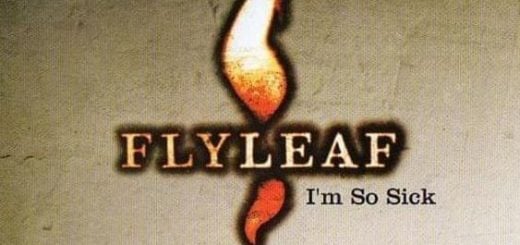I’m Sorry by Flyleaf Lyrics Meaning – The Search for Solace in Songwriting
Lyrics
I don’t mean to remember.
It’s true that I dream less often.
I’m not ashamed of that long December
Your hand’s coming down again.
I close my eyes and brace myself.
I only noticed your face.
No matter what you’re gonna build my shell,
I’m falling.
I’m shedding my skin, but it’s not time I’m told.
I am aware of what you mean and by then I’m only ten years old.
I close my eyes and brace myself.
I only noticed your face.
No matter what your gonna build my shell
My scars are yours today.
This story ends so good.
I love you and I understand that you stood where I stood.
I close my eyes and brace my self.
I only notice your face.
No matter what your gonna break my shell
I’m done healing.
I’m done healing.
In an industry that often glorifies the grandiose, it is the raw and authentic voice of Flyleaf in their deep-cut ‘I’m Sorry’ that resounds with a poignancy that demands our attention. The track delves into the intricacies of vulnerability, remorse, and the perpetual journey towards personal absolution.
Driven by Lacey Sturm’s evocative voice and the band’s dynamic sound, ‘I’m Sorry’ is more than just a song – it is a vessel for listeners to explore the nuances of regret and the path to healing. It’s a conversation about the scars we bear and the strength found in acknowledging our past.
Beyond the Surface: Unearthing the Vulnerability in Verse
The opening line, ‘I don’t mean to remember,’ sets a tone of inadvertent recollection, a powerful motif that speaks to the involuntary nature of memory and its ability to surface pain from deep within. The speaker conveys a struggle to move forward, something that listeners from all walks of life can resonate with.
In the throes of reflection, the speaker seems trapped in the ‘long December’ of their past, symbolizing prolonged periods of coldness and isolation that winter brings. This artistic metaphor paints a vivid image of enduring emotional hardship.
Navigating the Archetype of Abuse
Flyleaf makes a poignant commentary on the defense mechanisms built in the face of abuse. A ‘hand coming down again’ can be seen as a representation of recurring pain inflicted by someone else – a powerful figure whose impact is deeply felt.
The decision to ‘close my eyes and brace myself’ reflects a protective response to this pain, hinting at a hidden strength behind the victim’s vulnerability. Amidst the turmoil, the ‘face’ serves as a focal point – a possible symbol of both the abuser and the self, revealing the complexity of the victim’s feelings.
The Hidden Meaning: A Decade’s Descent
At the heart of the song is an intricate line, ‘by then I’m only ten years old,’ which layers the narrative with innocence lost. This window into the speaker’s past suggests that the roots of their turmoil are aged and deep-seated, adding a profound depth to their story.
Facing such trauma at a pivotal point of development can shape one’s entire outlook on life, and the lyric suggests a robbery of childhood that has left permanent marks, manifested as ‘scars’ that the speaker carries into adulthood.
Memorable Lines: ‘My Scars are Yours Today’
Arguably one of the song’s most powerful lines, ‘My scars are yours today,’ captures the song’s essence in its rawest form. This outward offering of personal hurt implies an act of vulnerability and forgiveness, as if to share the burden of the past with someone trusted.
The idea that our past wounds can be inherited by those we love, and our shared experiences can lead to a mutual understanding, resonates deeply. It’s a testament to the transformative power of empathy and the shared human experience of pain and healing.
The Redemptive Power of Love and Understanding
The narrative arc of ‘I’m Sorry’ reaches a hopeful conclusion with the affirmation, ‘I love you and I understand.’ It’s a powerful declaration of mutual recognition and the closure that can emerge from emotional solidarity.
This resolution presents a sense of peace in acceptance, and the transcendence of ‘standing where I stood’ suggests a shared courage to confront the past, together finding the resolve to move beyond it. Ultimately, it’s a message of healing, drawing strength from the love and understanding of others.








